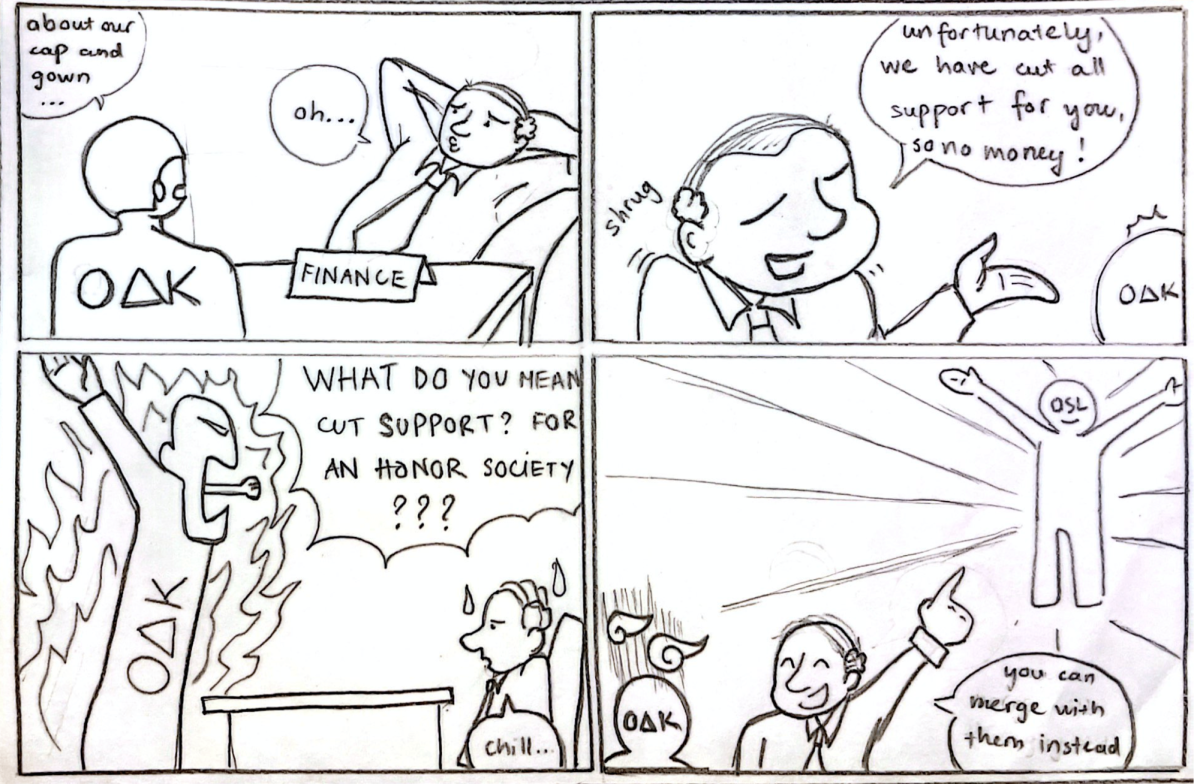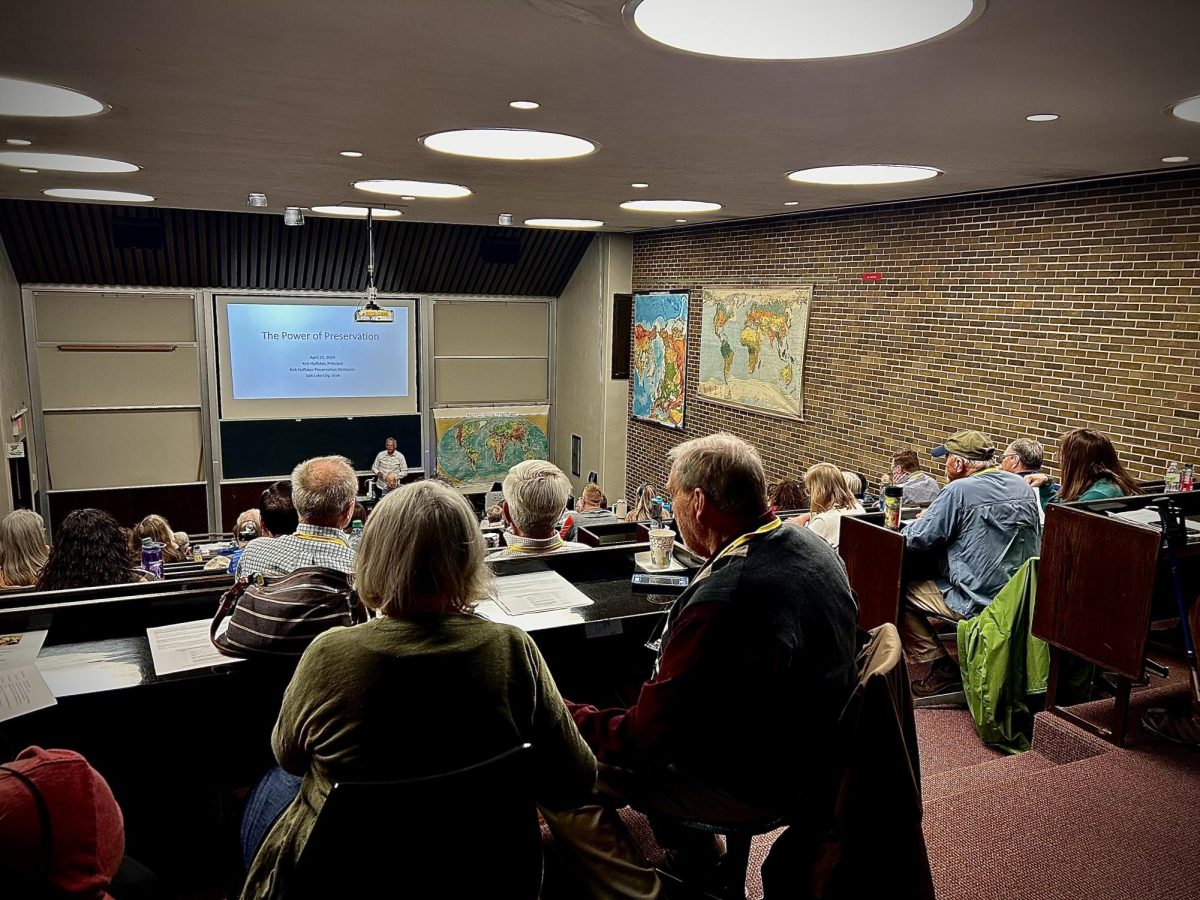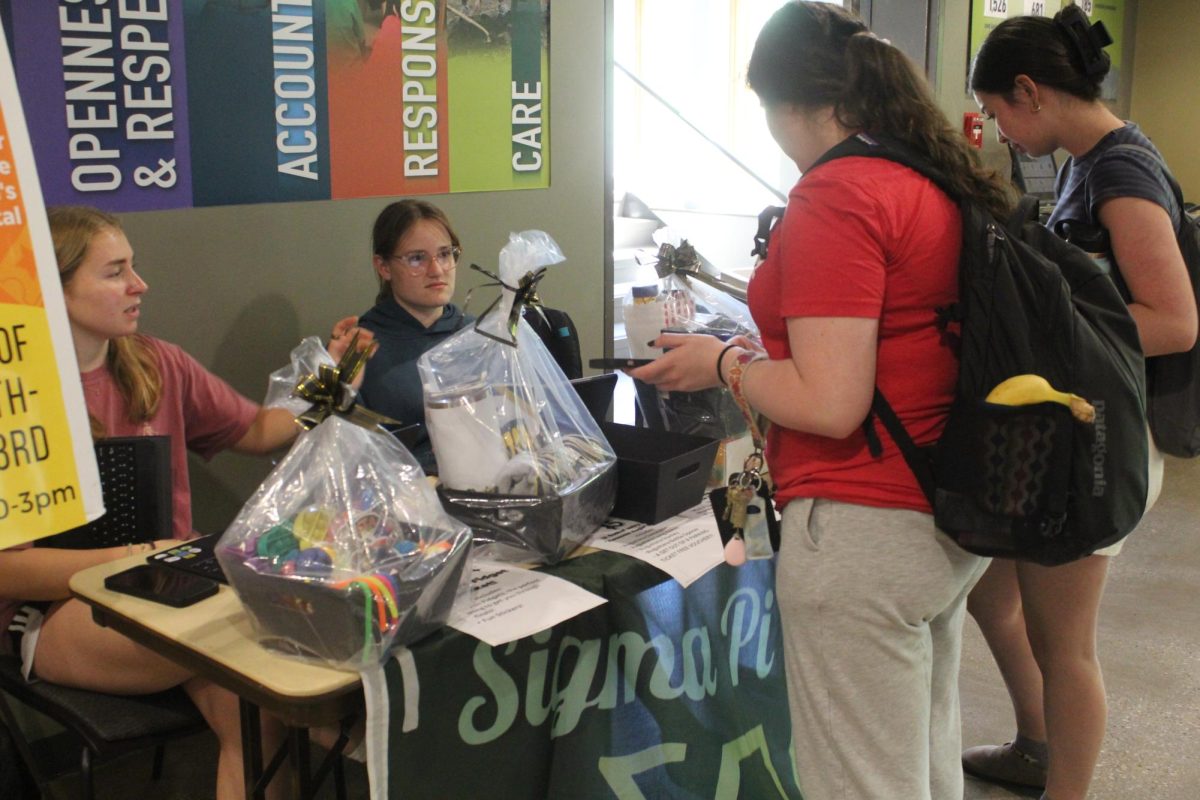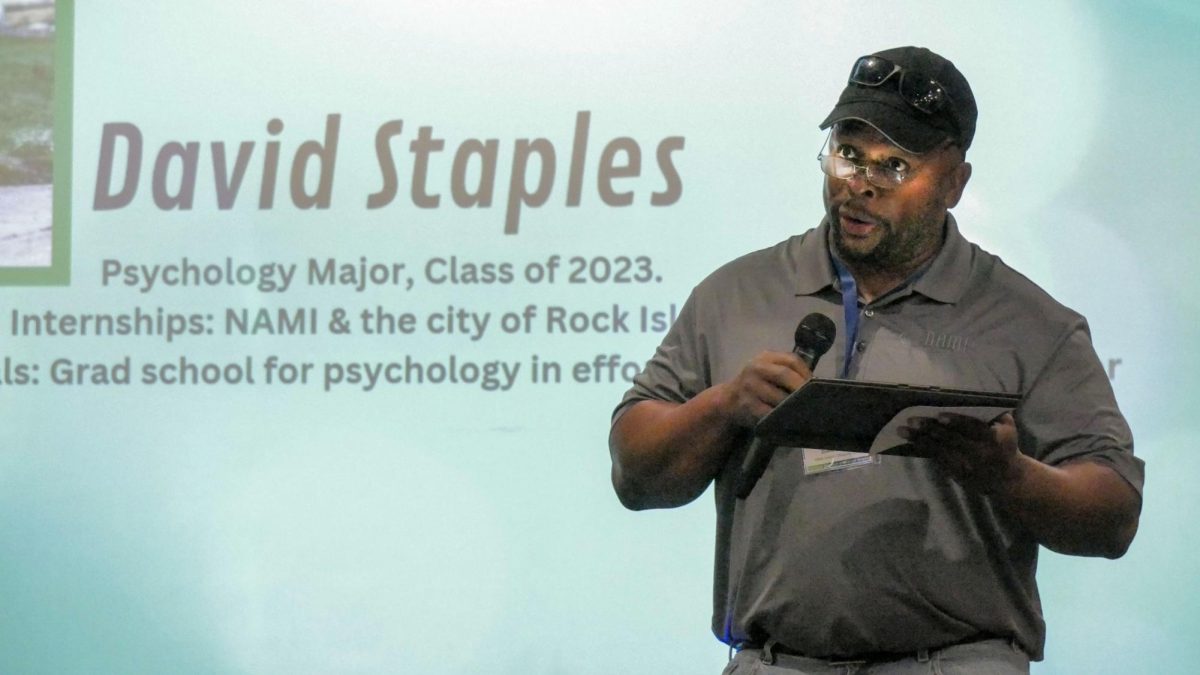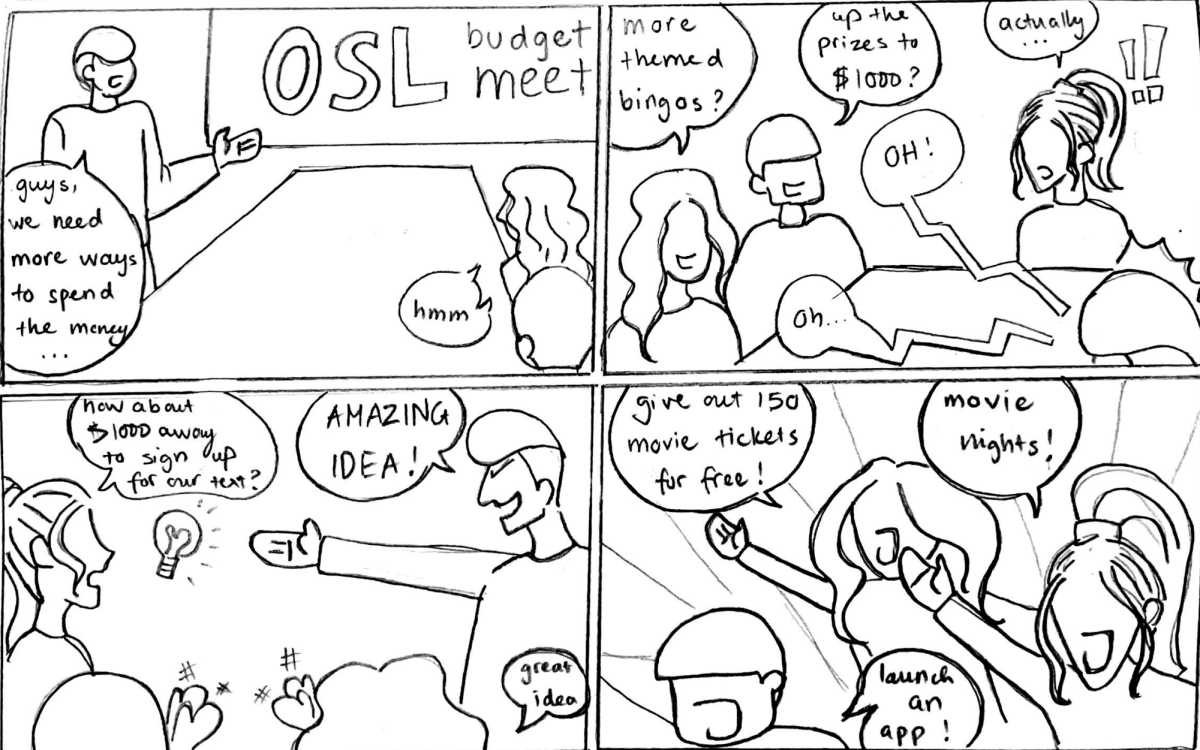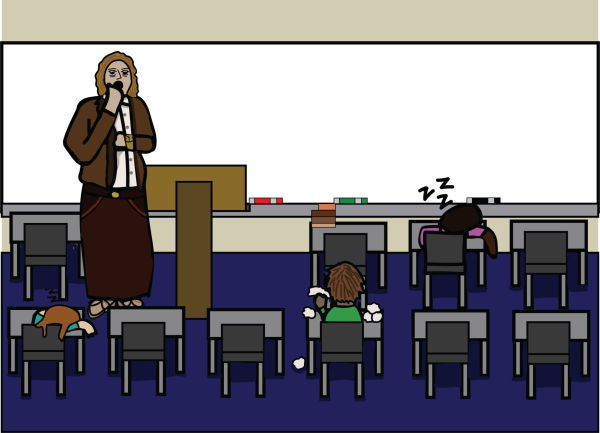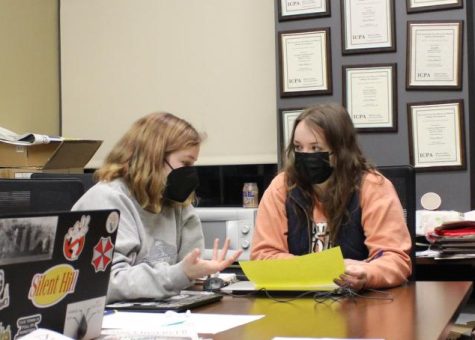Climate positivity remains crucial
May 17, 2023
When considering the issue of global warming, it’s easy to be a cynic. The ice caps are melting, killing polar bears and penguins. Sea levels are rising, pushing whole nations underwater.
It’s true, climate change is not preventable. We can’t backtrack the rising temperatures or save what we have already lost. However, what we can do is save our future and act as environmental optimists.
Senior Matthew Straus, who is majoring in Environmental Studies, credits his time fishing with his father as the origin of his passion for the environment.
“So, I initially went fishing with my dad a lot, ever since I was really little, like four years old. We would go out at like four in the morning, and then we would go to Lake Michigan,” Straus said. “So that initially drew me to the environment. [It’s] the only thing that I can see myself doing and being happy with for the rest of my life, something related to the environment.”
Similarly, Dr. Michael Reisner, Assistant Professor of Environmental Studies and Director of the Upper Mississippi Studies Center, found his passion in his experiences with nature.
“Initially as I was growing up, we did multiple long summer vacations to add some of the iconic national parks. So, Yellowstone, Rocky Mountain National Park, and the Grand Teton glacier.
Then, in my junior year of high school, we went all the way up to Banff in Jasper National Park. I would say that’s what drew me and then I got hooked,” Reisner said.
It’s critical to look at what we have lost, the connections we have had with nature, and use this to fuel our fight to save what we haven’t.
Look at the glass half full: we may currently be facing these environmental issues, but we should consider the steps we can take to prevent more and be willing to take these steps.
Again, it is easy to regard global warming and climate change as the end, but viewing this as a doomsday scenario holds no benefit for us or the planet, as it characterizes such an event as inevitable and is the opposite of motivational.
There are environmental issues that we cannot take back, but the key to preventing further environmental damage is to mobilize and take the necessary steps rather than abiding by a ‘dooms-day’ narrative.
“I think there’s plenty of evidence to show that doomsday scenarios do not mobilize people. You have to have a hopeful approach [and] a realistic assessment of the challenge before you,” Reisner said. “So I think you have to understand the scale and the scope of the problem. And once you know that, I think a hopeful approach is to deploy the collective strategies that have the best chance of succeeding, and if we do it, we can minimize the damage.”
The key word here is “collective,” with multiple strategies being deployed at once to address the environmental problem.
As a singular party, an individual is limited in the difference they can make on the environment. Some even argue that when an individual makes a change, the result is not worth the effort.
This is a similar story for most things, such as voting in the age-old argument that one vote doesn’t matter.
However, if one person makes a change, whether that be shopping
sustainably or becoming vegetarian, they still have an impact even if it is limited. Not making that change negates any potential impact.
There is also the fact that taking action works as a motivator, with individual action escalating into collective action, which can in turn have a much greater positive environmental impact.
“It’s all about inspiring people to make changes in their lives because then they will teach their kids, and they’ll teach their friends. Although it’s just like something small and local, inspiring someone can change how they think,” Straus said. “And I think that’s the hardest part of sustainability is trying to take your thought process and help spread that to other people because people have their own opinions and their passions.”
Developing a positive, motivated mindset at this point is critical, because every day we act indifferent and take limited strides to prevent climate change, it gets worse.
This highlights the importance of taking action in conjunction with maintaining a positive worldview and educating yourself on the pros and cons of what is causing climate change.
The next few years will indeed be tough, as the havoc we have wrecked on the planet continues to take its toll, and the population continues to grow, but this only reinforces the importance of recognizing that it’s not all bad – we still have a chance to implement positive change, to make a difference.
“It’s going to happen and be tough in the coming year. We’ll need to [make these changes] and it’ll be an urgent thing. And I already see a lot more people thinking more sustainably, changing their diets, encouraging other people to change, and stuff,” Straus said.
Straus went on to explain that technology has been helpful to spread climate change awareness.
“There are a lot of movements too in the media, like climate change movements, and I think that’s all helpful to just spread awareness and stuff. That’s the whole part of it. It’s not just all doom and gloom,” Straus said.
While they are difficult to seek out, there have been steps made toward sustainability.
Given this, it is critical to remain positive, despite all that occurs and the surplus of negative ‘doomsday’ ideas.
As time is of the essence, taking action now, spreading awareness, and educating yourself, are key steps we can take in combating the continued effects of climate change on our planet.
This means reinforcing these same ideas in others, whether it be through activism and awareness or simply leading by example on campus.

